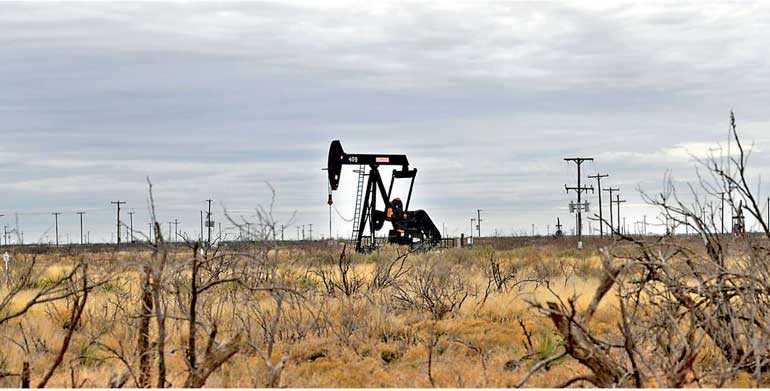Friday Feb 20, 2026
Friday Feb 20, 2026
Friday, 9 August 2019 00:00 - - {{hitsCtrl.values.hits}}

SINGAPORE (Reuters): Oil futures jumped more than $1 a barrel on Thursday, recovering half of the nearly 5% losses in the previous session, on expectations that lower prices may lead to production cuts.
Brent crude had rebounded to $57.75 a barrel, up $1.52, or 2.7%, from its last close by 0401 GMT, while US West Texas Intermediate (WTI) crude futures jumped $1.51, or 2.96%, to $52.60 a barrel.
Both contracts hit their lowest levels since January on Wednesday after a surprise build in U.S. crude inventories added to worries that the China-US trade war could further dampen demand growth this year.
Analysts said that crude prices were moving higher on the expectation that Saudi Arabia, the world’s biggest oil exporter, and other producers in the Organization of the Petroleum Exporting Countries (OPEC) may take action to support the market by reducing supply.
“The threshold is $60 a barrel and if you go below that for a significant period of time, I would expect supplies to be taken off the market in order to support prices up,” said Virendra Chauhan, an oil analyst at Energy Aspects in Singapore.
Bloomberg in a report on Wednesday cited a Saudi official saying that the country is in talks with other producers to take action to halt the oil price slide.
“Trade war rhetoric will continue to guide markets, but the comments from Saudi Arabia could lead to unprecedented action to stabilise prices,” said Alfonso Esparza,
a Toronto-based senior market analyst at Oanda.
“It is hard to imagine what that would look like given how hard it was to get the OPEC+ to agree to the production limit agreement, but given the potential free fall from crude if the trade war continues, no option is off the table,” he said, referring to OPEC+, a group including OPEC and non-OPEC producers such as Russia.
Esparza added that a weaker US dollar has also lent support to the oil price rebound.
The dollar index, which measures the greenback against six other major currencies, has declined 1% since 31 July, the day before the United States escalated its trade dispute with China by vowing to impose more tariffs, setting in motion retaliatory steps by China.